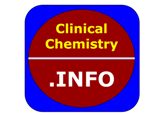Clin Chem Lab Med. 2025 Mar 20. doi: 10.1515/cclm-2024-1400. Online ahead of print.
ABSTRACT
OBJECTIVES: Many patients with sex chromosome abnormalities (SCAs) are diagnosed late in life or remain undiagnosed, leading to delayed or inadequate medical intervention and care. This study aimed to develop a reliable, rapid and cost-effective test for identifying SCAs using a blood sample – an essential step toward establishing a neonatal screening program.
METHODS: A total of 360 blood samples (180 SCA patients, and 180 controls) were obtained from four cross-sectional studies of adult patients with SCAs and age-matched controls. Informed consent was collected, and all procedures followed the Declaration of Helsinki. Multiplex quantitative fluorescence polymerase chain reaction (QF-PCR) utilizing short tandem repeat (STR) and X-linked segmental duplication (SD) markers was performed. Results were analyzed using an automated algorithm. Deviant results were manually reviewed to differentiate errors in the PCR process from those in automated data analysis.
RESULTS: Following automated data analysis of QF-PCR results, the method accurately identified 174 SCA patients (sensitivity: 96.7 %) and 171 controls (specificity: 95.0 %). Mosaic karyotypes were particularly challenging to diagnose. Manual reanalysis of the QF-PCR results corrected all false positives, achieving 100 % specificity.
CONCLUSIONS: This method is promising for reliable SCA detection in blood samples, offering cost-effectiveness and scalability. The specificity following automated data analysis was not satisfactory. The underlying PCR technique, however, demonstrated 100 % specificity, indicating that refining the automated analysis algorithm would significantly reduce false positive results. With further refinements, we believe this test would be highly suitable for further evaluation in a newborn screening setting.
PMID:40103208 | DOI:10.1515/cclm-2024-1400
